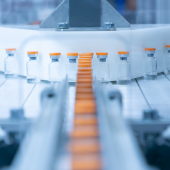Ricrea Consortium Steel packaging recycling at 75%
From 1 January 2019 the CAC for steel packaging decreases Thanks to the 361,403 tons of steel recovered from packaging in Italy in 2017, a direct saving of 686,660 tons of iron ore and 216,842 tons of coal was obtained, as well as 646,922 tons of CO2.

Italy confirms its excellence in the segregated collection of steel packaging, ie jars for tomatoes and tunafish tins, spray cans, crown caps, tins in general and for sweets and liqueurs, drums and capsules for jars. With the 361,403 t sent for recycling in Italy in 2017, it would be possible to build 3,600 km of railway tracks, sufficient to connect Bari with Moscow. The recovery rate, equal to 75.3% compared to the quantities released for consumption, puts Italy among the best in Europe.
According to data disclosed at the beginning of July by the RICREA Consortium (the national non-profit consortium for the collection and recycling of steel packaging), compared to the previous year, the operating indicators show an increase in the amount of packaging released for consumption (479.737 t, +1.3%) and the municipality involved in agreements (5.666), with a served population reaching 82%.
One of the main activities of RICREA is the promotion of the segregated collection of steel packaging through the stipulation of agreements with the Municipalities on the basis of the ANCI-CONAI framework agreement, the instrument through which the consortium system guarantees Italian municipalities the coverage of the higher costs incurred to carry out the segregated waste collection of packaging.
Progressive decrease of the CAC. In 2017, thanks to a significant increase in revenues from material disposal, the Consortium’s revenues increased and this positive trend enabled a further reduction of the CONAI Environmental Contribution (CAC), which has reached 8 euros/ton as of 1 January 2018 to reach the 3 euro/ton planned from January 1 2019, the lowest value since the setting up of RICREA. A reminder that the CAC, established for each type of packaging material, is the form of financing through which CONAI shares out the cost for the increased outlay for segregated waste collection, recycling and recovery of packaging waste between producers and users. «In these last years, the revenues generated by the sale of material have exceeded the yield due to the environmental contribution”, explains Federico Fusari, General Manager of Ricrea. «And the current values of the CAC, in addition to being an important competitive factor for the member companies, is the measure of management efficiency achieved by the Consortium. The challenge that awaits us in the near future will be to continue to deal with the lower revenues due to the reduction of the CAC, while ensuring greater commitment to the municipalities, to further improve the already excellent results obtained».




















